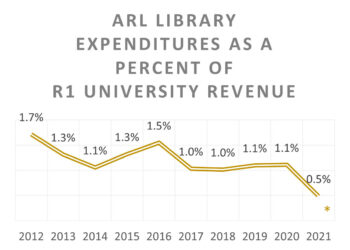
In a move suggesting considerable coordination, the European Commission has announced its support for open access (OA) publishing solutions for all its member states. The statement, coming fast on the heels of a nearly identical mandate from the UK, is only a statement, unlike the RCUK mandate that was announced earlier this week. However, it mirrors the UK statement in many specifics, including proposed embargo times for various types of research.
The arguments intoned by the European Commission are off-the-rack OA arguments — taxpayers have paid for the research, so they should have access to the reported results; what they want is the final published papers; subscription prices are squeezing library budgets; open data is also part of open access; and public access to research reports will provide more value to society than keeping them “locked up.”
European Commission plans outline either funding for author fees for Gold OA, or deposit of papers after an embargo in an open repository (six months for everything but humanities and economics journals, a distinction I still shake my head at). One such repository could be the EU’s OpenAIRE.
How might publishers respond? It will be interesting to see. Some will protest and fulminate, of course, but that’s unlikely to be effective. Others will understand that there’s a potential silver lining in these clouds.
Rational economics suggests that when a large and well-funded sponsor steps forward offering to pay for you to get your work done, you rationally transfer all your costs to them. Publishers know what it costs to do what we do. Policymakers seem to believe the OA line that online makes it all cheap and cheerful. Therefore, both the EU and UK groups believe that publishing costs will fall dramatically. I don’t see this as necessarily true.
The disconnect we may see over the coming years as these mandates warp our businesses will, I think, be financial.
Right now, most “gold OA” is achieved on the backs of subscription models, either through embargoed subsidies (the costs of delayed Gold OA are mostly recouped during the current 12-month embargo) or through indirect subsidy (the subscription part of a business does well enough to support some OA publishing) or through environmental venue-shifting (I publish my minor works in OA journals with low prestige, saving my better works for subscription journals with high prestige).
If you know of one, please tell me about a high-prestige OA journal that doesn’t need some type of cross-subsidization, and what it charges authors.
Assuming that the UK and EU moves are designed to put the subscription model out of business for scholarly publishers, yet all the valuable pieces of what the subscription model contains are assumed to be transferred, the financial battles over what it really costs to go “all in” on OA may be pitched, and rather surprising. Nature’s estimate of US$10,000 may prove to be low, and with research funding the only targeted budget line for OA fees, we are tapping an artery. Also, secondary filtering services may prove to be where the smart money goes, as the core literature will become impossible to navigate as it becomes more and more like the current government repositories few use and fewer value.
In an effort to give something to people who aren’t really demanding it and to cut costs in one ancillary area (libraries) by creating expenses in a core area (research), policymakers in Europe seem to be shooting themselves in the foot. But given their recent track record on austerity, LIBOR, and other matters financial, should we really be all that surprised that they’d also hurt a major European industry, misallocate research dollars to publishing, and deflate the overall economy even more?
Discussion
12 Thoughts on "Echoes of England — European Commission Backs Open Access by 2014 in Statement"
For the higher end journals, are we likely to start seeing submission fees? The problem for a Nature is that they’re rejecting 95% of the articles that come in, and Gold OA only brings in funds for the papers that are accepted. A submission fee would drastically reduce the number of papers submitted, thus lowering costs, and would provide funds to cover the cost of rejecting the papers where the authors are willing to gamble and pay the submission fee.
I know of journals that are actively discussing this possibility, with submission fees possibly applied to the full OA charge if accepted. The tiers we sense in scholarly journals may become dramatically clear in such a world.
The FASEB Journal uses a very interesting approach: Before submitting your manuscript, you must send in an Initial Query to an editor, who will decide whether s/he wishes to see the manuscript.
Subscription fees were openly discussed back in the day at BioMedCentral (prior to Springer buying it). And I seem to recall that the economics of it looked very nice indeed, but the anthropomorphic effect were worrying as essentially it made scientists bet on the quality of their work and every bet carried a financial penalty as the paper trickled down through the journal system. Also, it’s a first mover disadvantage.
I think the costs of this policy will start hitting home in Europe (and the UK) as it battles general austerity measures and budget cuts. The squabble for available research funds is going to get fierce.
One interesting angle is the impact on collaboration. Researchers who do not have OA mandates might not want to team with those who do. In the regulatory world this is called opting out.
I think libraries are likely to find that they have won a pyhrric victory. Universities and governments strapped for funds and not wanting to divert yet more money from research budgets to support Gold OA may well decide that OA means that libraries are no longer needed, and libraries will begin to find their budgets severely cut and personnel laid off in droves. Don’t expect administrators at the top levels to have any better understanding of what librarians actually do and what “value added” they contribute than they understand what publishers do and what “value added” they bring. It will be quite ironic that in their campaign to take pressure off their budgets by championing OA, libraries will find their budgets suffering even more.
Certainly the shift of budget will cause a diminution of the budget of libraries; however, I see two reason not to be too pessimistic for their future.
First, they can shift their role to follow the shift in the publication model. One of our librarian (in a department library with four staff) is already working on maintaining a small portal with links to electronic journal we have access to, checking metadata of preprints we put on a national server, etc.
Second, if we manage to spend less on the whole publication process (and we have *a lot* of margin to do that, I can give many evidence for this claim) they will be able to have a better balance between researchers and student/teachers. Indeed, in France (at the very least) the university libraries are devoted to both tasks, but the pressure on budgets in the last years have pushed them into spending much on subscription for journals aimed at researchers, and very little on books for students.
Even in a OA world, there is a place for librarians in universities (but maybe less of them, true).
I know that librarians will still have many useful roles to play in an OA world. (As a university press director, I reported to the head librarian at Penn State for the last four years of my career there and had many interactions with librarians.) My concern is that the funders and administrators who do not ever observe libraries up close but simply make assumptions about them will draw unwarranted conclusions about how OA affects libraries, in just the way that many people today think publishers are unnecessary since everything can just be posted to the Internet at no cost! Librarians will need to learn more how to justify their continued existence, just as publishers are having to do.
It is stunning to see how you start by stating that you do not know whether the academic system will be able to make economies in an OA model, then claim that such a shift will for sure disrupt the entire world economy. Are you trying to earn the grade of anti-OA zealot?
By the wayn I do not know high prestige OA journals, because we do not have many OA journals at all in my field (mathematics), but Cambridge University Press is announcing the launch of “Forum of Mathematics”, whose editorial board is among the most impressive possible ones, and will be OA with 750$ APC per article, fee waiver for the ones unable to pay, and fee waivers for all the first three years. We’ll soon see whether it will become a top journal, and maybe the standard reasoning will be “I publish my minor works in subscription journals with low prestige, saving my better works for OA journals with high prestige and that everyone can access without restriction”.



